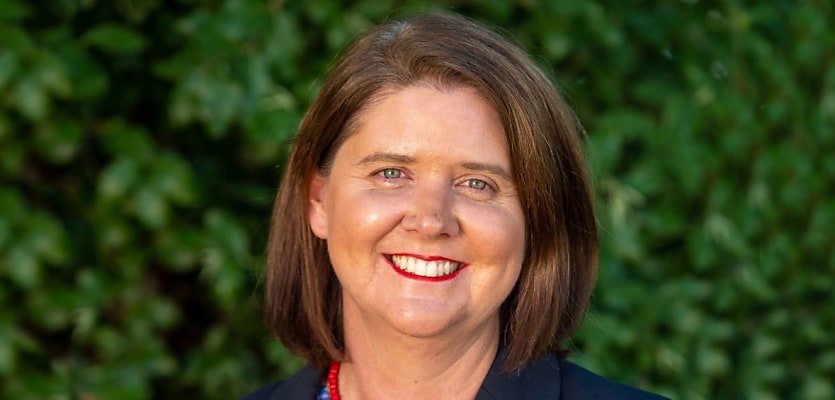There has been no bigger beneficiary of the shift to remote and hybrid work than Australia’s regional cities and towns.
When NSW Premier Chris Minns, who oversees the state’s public servants and therefore the largest workforce in the nation, issued a memo last week instructing NSW employees to conduct their duties “principally at an approved workplace, office or related work site”, he sent shockwaves into communities all across the state.
Not just among the regional residents who already weathered a population boom during COVID-19 and adapted to the new economics of their town; not just among sea- and tree-changers who have found better work/life balance, mental health or family connectedness living outside of the city; but among anyone planning – or dreaming – about about escaping the hustle and bustle of the city for the myriad of benefits that regional living offers.
Perhaps no one understands this better than Liz Ritchie, CEO of the Regional Australia Institute (RAI), who catalogued the full, nuanced flow-on effects of hybrid and remote work on Australia’s towns and non-major capitals during a recent episode of The Smart Property Investment Show.
Calling Minns’ memo “unfortunate news to read”, Ritchie has had a front row seat to witness how, as she described, “the opportunities that have arisen from mobilising a work-from-home culture are changing the very nature of our nation as we know it”.
Though certainly the great regional migration trend that kicked off at the start of COVID-19 did not come without growing pains, Ritchie has been at the forefront of cataloguing how towns have come out economically stronger from the population growth that turned out not to be a trend, but instead a sustained flow – thanks in large part to the flexibility offered by remote and hybrid work.
In the eyes of the RAI, this shift has opened up “so many opportunities for people to move to where they love, move closer to their family where they may have grown up, or just choose a different lifestyle, one that offers them a selection of activities or locations where they get to participate in a community in ways that they couldn’t before”.
“What we see is that working from home is an inclusive policy, inclusive in that it opens up flexibility for working parents by having the flexibility to juggle a meaningful career and also support their family and all of the many demands that we have in our lives today in modern life,” Ritchie explained.
But it’s not just families that are seeking livability in Australian regional areas.
“We know [Australians] are moving for more time and more space, they’re moving for more connection. They want to be part of a community. They want to volunteer on the weekend and be part of local sporting groups. We’ve seen the demise of sport in Australia and it’s because of the way we work, the way we live. We’ve seen the demise of volunteerism for exactly the same reasons, with people working long hours and the stress and pressure of modern life. Local community groups are crying out for volunteers,” she noted.
While the increase in population has, in some parts, placed pressure on housing, infrastructure and services that Ritchie and her team are working to have policymakers address, she noted that a diverse workforce – who can do their jobs from a greater distance – ultimately impacts the vitality of the town in which they chose to live.
“When people who have a desire and aspiration to participate and live in a regional community [make the move], they come with their skills, their knowledge, their energy, their effort; they come with their salary and so they start to participate in regional communities in ways that simply wouldn’t be available to them in a metropolitan area,” she said.
Ritchie is not alone in her concern for how Minns’ missive might negatively impact communities, and she asserted she would be adding her voice to the entities that have expressed concern, such as the Public Service Association, which promised its members it would ensure flexibility remained in the NSW public sector and the workforce would “never return to pre-COVID work arrangements”.
The issue will certainly be a topic of discussion this week, given its importance to regional communities, as the RAI assembles for the Regions Rising National Summit on 13–15 August.
Beyond that event, Ritchie said she believes it’s time for “a much bigger national conversation about what remote work means in an economic perspective for our nation”.
Within that discussion, she is adamant that the societal perspective must not be absent, such as sometimes happens when policymakers take a broad view.
That includes examining “how do we actually think about the cost of mental health, the cost of congestion, the cost of pollution, the cost of living, the busyness of metropolitan life and what that does to a person”.
“People are making their choices about moving because they’re looking for a healthier lifestyle and we have to listen to that. We have to be attuned to that. So it’s a big topic and I think there’s going to be a whole lot more to come on this,” Ritchie said.
You can listen to the full conversation here.
ABOUT THE AUTHOR
Juliet Helmke
Based in Sydney, Juliet Helmke has a broad range of reporting and editorial experience across the areas of business, technology, entertainment and the arts. She was formerly Senior Editor at The New York Observer.









You are not authorised to post comments.
Comments will undergo moderation before they get published.